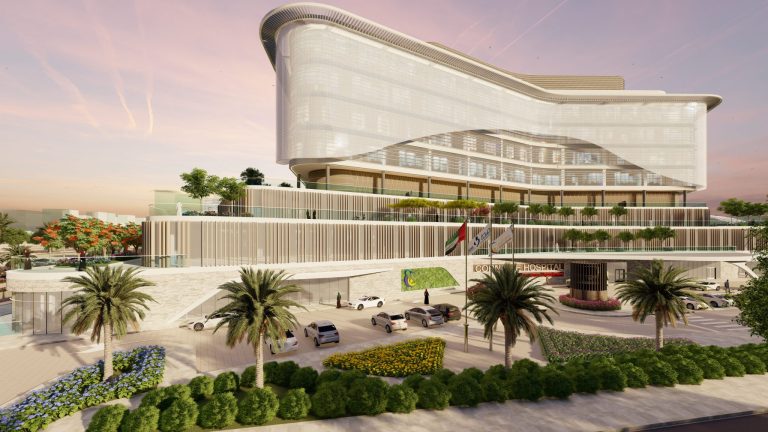Interior Designer, Morgan Consulting Engineers
Morgan has incorporated sustainability as a core pillar of our planning, design and construction administration processes especially in our healthcare projects, as a trusted partner of local and international government and private healthcare operators.

Around the world, healthcare facilities are a major and growing part of national economies and consequently, make a large impact on carbon emissions and resource use. Healthcare facilities have been progressively required to improve their environmental performance as this also contributes to the quality of the facility and the services it provides. Modern healthcare facilities should offer a healing environment and promote healthy societies hand-in-hand with effective treatment services.
A sustainable healthcare system:
- Improves, maintains, or restores health.
- Minimizes negative impacts on the environment.
- Promotes the health and well-being of current and future generations.
In a worldwide approach to adopting sustainable healthcare facilities, the focus has been to develop sustainability-oriented methodologies and techniques for achieving sustainable architecture. So how does Morgan Consulting Engineers approach sustainable healthcare architecture?
Morgan Group was accredited to be the first architecture and engineering consultancy that achieves sustainability by the local government regulator ADM, Abu Dhabi Municipality. In the spotlight of our significant ongoing healthcare projects, the engineers are designing towards sustainable, safe, innovative facilities. The ethical responsibility of a project team to advocate for environmentally sustainable initiatives during design and construction is well considered. Morgan achieves sustainable healthcare architecture through different strategies. The planning, design, and construction processes focus on reflecting sustainability pillars. Sustainability pillars are environmental, social, economic, and systematic. The first example is a healthcare design process in Morgan adopts integrating regenerative design methodologies and green initiatives to achieve environmentally sustainable design. This is achieved by environmental design strategies such as sourcing renewable building materials to lessen the manufacturing carbon footprint and minimizing energy use through passive solar design and ventilation, for example. Projects done and ongoing by Morgan such as the New Corniche Hospital, and the Dialysis Center at SKMC have been incorporated with energy generating solar panels. In the healthcare context, social sustainability is reflected by the ability of healthcare facilities and healthcare systems to enhance the quality of life and improve well-being in a population. In the design process, it is made sure that the design is encouraging hospital attendance by creating a less institutional feel by opening a central courtyard, for example, symbolizing transparency of the treatment process. The New Corniche Hospital is designed to promote public health through public realm. The landscape and extension services of the hospital have been designed to target ecological, social, and economic sustainability.


Applying provision of a sustainable healthcare framework is also an essential step in the planning of a healthcare project as well as developing sustainable strategies of the flow of people, and material in different classifications. Morgan applies “Lean + Process Management” to enhance the operation of the hospital and reduce travel time and accordingly costs associated with staffing and operation. A thorough understanding of complex patient and staff flows allows for improved efficiency through design and departmental adjacency considerations. Implementing smart technological and innovative advancements such as electronic e-health interventions have proven in projects done: improved health outcomes and access to care, and reduced pollution through reduced need for travel. Various medical devices and technologies have also contributed to a reduction in water usage and the production of wastewater, thereby negating greenhouse gas emissions. Sustainability in healthcare design ensures massive improvement in public well-being and recovery, and health promotion, linked to the energy-efficient connection of health environments within natural, societal, economical, and operational systems.
“Hospitals can situate themselves within the ecology of their communities and act as a force for healing.”
